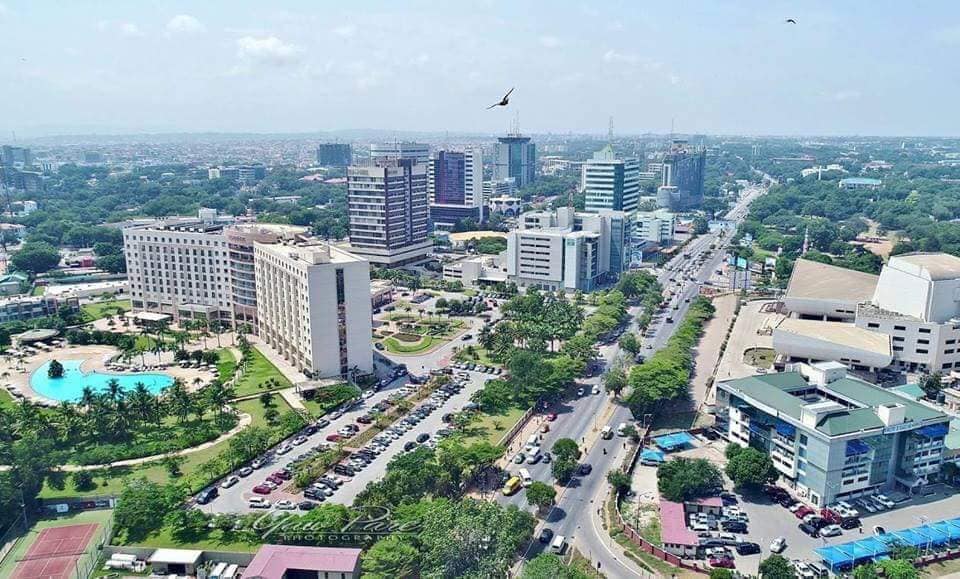In the past two decades, Ghana, which has a population of about 29.6 million (2018), has taken major strides toward democracy under a multi-party system, with its independent judiciary winning public trust. The country consistently ranks in the top three countries in Africa for freedom of speech, press freedom, and a strong broadcast media, with radio being the medium with the greatest reach to the people.
On the world map, you will find Ghana situated on the West Coast of Africa, bordering the Atlantic Ocean. Follow the Western Coast of Africa until it curves inwards, and you will have located the Gulf of Guinea. Now draw a line straight down from London to the Gulf of Guinea on the map and you will land on Ghana. And if anyone asks what time it is in Ghana? Well, that is easy! Ghana’s Time Zone is the same as Greenwich Mean Time Zone. Ghana is one of a handful of countries contesting for the title of “closest to the equator”, so you are not likely to find many climates as tropical as that of Ghana. As a matter of fact, Ghana has two seasons: a wet season and a dry season.
Ghana’s macroeconomic environment has improved over the last three years under its extended Credit Facility Agreement with the International Monetary Fund (IMF), which concluded in April 2019. The fiscal deficit has narrowed, inflation has waned, and GDP growth has rebounded. This has been primarily driven by the country’s surge in oil production. Ghana’s economy is projected to grow 8.8 percent in 2019, according to the IMF, after expanding over 8 percent in 2017 and an estimated 5.6 percent in 2018. The economy remains highly dependent on the export of primary commodities such as gold, cocoa, and oil & gas. However, Ghana is vulnerable to potential slowdowns in the global economy and commodity price shocks. The Government of Ghana is seeking to diversify and industrialize, through agroprocessing, mining, and manufacturing.
Ghana is the best destination to invest or set up a business based on the following:
• A reduced corporate tax rate of 8% is available for companies engaged in “non-traditional exports,” and a 20% tax rate applies to financial institutions on income from loans granted to farming enterprises and leasing companies.
• Free Trade Zone (FTZ) companies have a 10-year exemption period after which they pay corporate tax at 15% on export sales.
• A rebate is granted to manufacturing companies located outside Accra and Tema.; In regional capitals (other than Accra and Tema), the rebate is 75% of the standard corporate tax rate of 25%, and in all other places, it is 50% of the standard tax rate.
In addition, as compared to most West African countries, Ghana has steady growth, skilled and trainable labour, sizeable consumer base with an emerging middle class and more developed infrastructure. Moreover, when it comes to political stability Ghana ranks 1st for the Global Peace Index in West Africa (IEP, 2020). Ghana is also described by other West African countries as a hub for opportunities and an access to other ECOWAS countries. Into the bargain, 100% foreign ownership and expanding stock market is permitted in Ghana.
The above clearly indicates how the Government of Ghana has policies implemented specifically to ensure the smooth success and growth of businesses set up by citizens and non-citizens, home and abroad.
For a company to operate in Ghana, it must be registered with the Registrar Generals Department (RGD). Under the Companies Law, the procedure for the formation and registration of a business in Ghana may be described as a simple process.
To register a company the following should be noted:
- All directors and executives must be able to provide their personal information es (i.e., full name, age, marital status, nationality, proof of national IDs or passport, proof of residence and addresses).
- Shareholders, beyond the requirement of providing their personal information, are required to declare their source of wealth, number of shares to be held and a bank or professional reference.
Setting up a Business in Ghana as an Expat
Expats can set up a business in Ghana through the RGD.
Expats must research on the various types of companies they may be able to set up in the country, which may include a limited liability company or setting up an external company. Each type of company has its own structure requirements (such as the number of directors, capital requirements, fees etc.).
Generally, directors or local branch managers may require a tax identification (TIN) to register the business. This may be acquired at the Ghana Revenue Authority (GRA).
For any company that is at least partially foreign owned must be registered with the Ghana Investment Promotion Centre (GIPC). This could vary from joint ventures, foreign-owned entities, or trading entities. However, conditions are subject to change; hence, the GIPC website should be visited regularly to understand exact capital requirements based on the type of business entity.
For further clarification and assistance when setting up a business, expats should seek a professional advisor with full knowledge of business, banking, and tax law in Ghana for assistance.
Furthermore, even though English is the official language used in the business environment, having a knowledge of local dialect may be beneficial.


